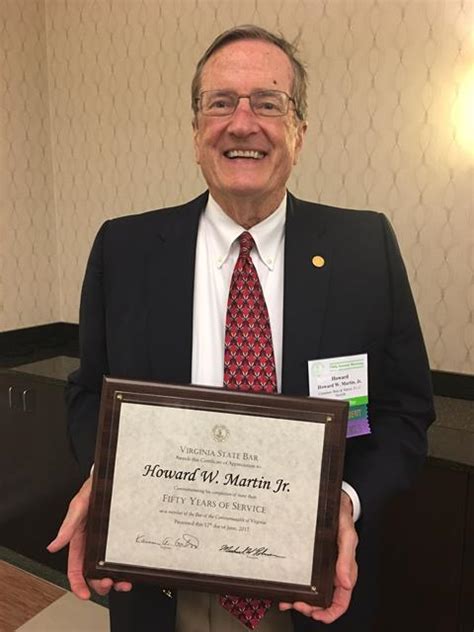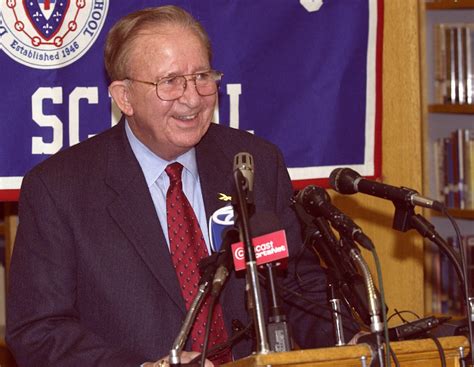A Quote by Dale Carnegie
Psychiatrists declare that most of our fatigue derives from our mental and emotional attitudes... What kinds of emotional factors tire the sedentary (or sitting) worker? Joy? Contentment? No! Never! Boredom, resentment, a feeling of not being appreciated, a feeling of futility, hurry, anxiety, worry-those are the emotional factors that exhaust the sitting worker, make him susceptible to colds, reduce his output, and send him home with a nervous headache. Yes, we get tired because our emotions produce nervous tensions in the body.
Quote Topics
Anxiety
Appreciated
Attitudes
Because
Being
Being Appreciated
Body
Boredom
Contentment
Declare
Emotional
Emotions
Exhaust
Factors
Fatigue
Feeling
Futility
Get
Headache
Him
His
Home
Hurry
Joy
Kinds
Make
Mental
Most
Nervous
Never
Our
Output
Produce
Psychiatrists
Reduce
Resentment
Sedentary
Send
Sitting
Susceptible
Those
Tire
Tired
Worker
Worry
Yes
Related Quotes
When we consciously choose a core heart feeling over a negative feeling, we effectively intercept the physiological stress response that drains and damages our systems and allow the body's natural regenerative capacities to work for us. Instead of being taxed and depleted, our mental and emotional systems are renewed. As a consequence, they are better able to ward off future "energy eaters" like stress, anxiety and anger before they take hold.
In the Christian sense, love is not primarily an emotion but an act of the will. When Jesus tells us to love our neighbors, he is not telling us to love them in the sense of responding to them with a cozy emotional feeling. You can as well produce a cozy emotional feeling as you can a cough or sneeze. On the contrary, he is telling us to love our neighbors in the sense of being willing to work for their well-being even if it means sacrificing our well-being to that end.
Emotional self-control is NOT the same as overcontrol, the stifling of all feeling and spontaneity....when such emotional suppression is chronic, it can impair thinking, hamper intellectual performance and interfere with smooth social interaction. By contrast, emotional competence implies we have a choice as to how we express our feelings.
I think the emotion that song carries makes it good. Because you have to produce around something - an emotional attachment and a feeling. The melody itself has a feeling in it. The keys, the tones, frequency, sonics, all of those have feelings in it. Like, it's the ghost within, the music itself. That's what makes the song even have a possibility of being great. The emotional connection. Because if you don't have that, I don't think you really have a song.
How do we regulate our emotions? The answer is surprisingly simple: by thinking about them. The prefrontal cortex allows each of us to contemplate his or her own mind, a talent psychologists call metacognition. We know when we are angry; every emotional state comes with self-awareness attached, so that an individual can try to figure out why he's feeling what he's feeling. If the particular feeling makes no sense—if the amygdala is simply responding to a loss frame, for example—then it can be discounted. The prefrontal cortex can deliberately choose to ignore the emotional brain.
Emotional dependence is the opposite of emotional strength. It means needing to have others to survive, wanting others to "do it for us," and depending on others to give us our self-image, make our decisions, and take care of us financially. When we are emotionally dependent, we look to others for our happiness, our concept of "self," and our emotional well-being. Such vulnerability necessitates a search for and dependence on outer support for a sense of our own worth.
Emotional Literacy means being able to recognise what you are feeling, so that it doesn't interfere with thinking. It becomes another dimension to draw upon when making decisions or encountering situations. Emotional expression by contrast can mean being driven by emotions, so that it isn't possible to think. These two things are often confused, because we are still uncomfortable with the idea of the validity of feelings.
You are the real teachers. You have these children when they are at their emotional peaks and lows. That's when they are the most pliable. It doesn't take any intelligence to send a kid home with his head hanging between his knees. But to send him home with his head up every night might show a little coaching.
Our society’s failure to recognize and care for the social and emotional well-being of our boys contributes to a nation of young men who navigate adversity and conflict with an incomplete emotional skill set. Whether boys and later men have chosen to resist or conform to this masculine norm, there is loneliness, anxiety, and pain.
Frequently what we say is rest is merely laziness. Our body requires respite and so does our mind and spirit. But a person should never rest because of a laziness which arises from the evil nature in his emotion. How often laziness and emotional distaste for work join to employ physical fatigue as a cover-up.




































